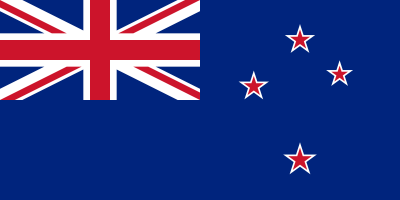New Zealand’s Only Middle East Exit Strategy – Leave Now

Why are New Zealand troops in the Middle East? Our soldiers have been there for so long we’re in danger of forgetting why we sent them in the first place. And, since New Zealand’s contribution can only ever be token, what is this country’s apparently permanent presence in the world’s most dangerous region intended to communicate?
To Arab eyes, New Zealand’s presence must signal a depressingly familiar message. Since the late-19th century, this country has happily marched in the great expeditionary columns that have trudged their way across the dry and dusty regions of the world. From the South African veldt to the Sinai desert, the Kiwis’ broad-brimmed hats have dutifully bobbed along behind the pith helmets of their Imperial British mentors.
Numerous speeches have been delivered this year commemorating the grievous loss of young New Zealanders in the muck and fury of France and Flanders during the First World War. The Defence Minister, Gerry Brownlee, was in France only recently intoning the doleful register of our sacrifices at the Battle of the Somme. Not as much is being said, however, about the considerably less muddy and bloody exploits of the New Zealand Mounted Rifles in what was then the Ottoman Empire.
 About 70 New Zealand Defence Force troops deployed to help train Iraqi Security Forces returned to New Zealand in May.
About 70 New Zealand Defence Force troops deployed to help train Iraqi Security Forces returned to New Zealand in May.
All New Zealanders know about their country’s role in the invasion of the Gallipoli Peninsula in 1915. Less well known is the role that Kiwis and Aussies played in driving the British Lion’s blood-stained claws into the carcass of the Ottoman Empire’s Middle Eastern provinces – especially Palestine – between 1916 and 1918.
The New Zealand Government’s reticence about drawing Arab attention to the role this country played in the emergence of the State of Israel is entirely understandable. What purpose would be served by reminding Arab historians about the Kiwi and Aussie troops responsible for the deaths of more than 200 Palestinian men and boys in the tiny village of Surafend in 1918? Or about the fulsome vote of thanks delivered to the Antipodeans by residents of the nearby Jewish settlement of Richon Le Zion?
Dredging up these historical incidents might prompt Egyptian historians to investigate the role played by the New Zealand and Australian mounted infantry in suppressing the Egyptian nationalist revolt against British domination which exploded in the final months of 1918 – a task made much easier by the Antipodeans’ already fearsome reputation for brutality against Arab civilians.
Questions might be asked about whether or not New Zealand’s behaviour towards the Islamic world has changed all that much over the course of the past 100 years. True, the British Empire is no longer the dominant global superpower, but its American successor would appear to be no less persuasive when it comes to drawing the Antipodeans back into the marching columns of imperial adventures.
Indeed, if Nicky Hager’s book Other People’s Wars is to be believed, members of the NZ Defence Force were more-or-less begging the Americans to allow them to participate in the pacification of Afghanistan following the terrorist attacks of 9/11. Perhaps it was this country’s soldiers’ enthusiasm to get back in the imperial game that prompted US Secretary of State Colin Powell to inform the world that the USA and New Zealand had, once again, become “very, very, very good friends”?
The only serious diplomatic spanner which New Zealand has ever dropped into the works of her imperial allies was the one let slip by Helen Clark in 2003. The fifth Labour Government’s refusal to invade Iraq without the approval of the United Nation’s Security Council did not go unnoticed by the Arab world. For the first time in its history, New Zealand had declined to join its traditional allies – Australia, Britain and the USA – in a military enterprise. It could have marked the beginning of a new era in this country’s foreign affairs and defence policies. Sadly, it was not to be. Clark’s government was soon “persuaded” to step back into the dry and dusty places of the world.
Where, it would appear, we intend to stay. New Zealanders were assured that our assistance to the Iraqi government came with a clear exit strategy. Our troops would be engaged in training the Iraqi army – nothing more. But now, the “mission creep” historically inseparable from these ostensibly limited engagements has our Government contemplating extending the NZDF’s training role to the Iraqi police. The Guardian newspaper is, further, reporting the involvement of our Special Air Service in combat operations against Islamic State. These claims have been strenuously rejected by John Key. But then he would say that – wouldn’t he?
To the peoples of the Middle East, the first step towards securing peace in the region is extremely simple: the nations of the West must leave. That includes New Zealand. We have aided and abetted the forces of imperialism for far too long. It’s time to go.

